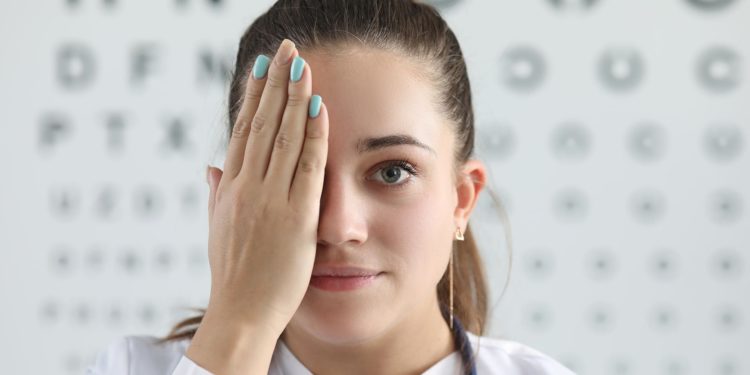Despite being fundamental to general health, eyes health is often ignored until visual issues develop. Since our eyes are our windows to the outside world, having them healthy is essential to living a happy and fulfilled life.
It must never be this way that we start caring when disease hits us hard. Rather our life must be full of quality for overall well-being.
It is more crucial than ever to protect our vision because of the aging population, dangerous environmental elements, and increased exposure to digital devices.
Diet, daily routine or our life choices, all impact our eye health.
Furthermore, your ability to view the world around you makes your eyes tremendously vital and they are one of the most important body parts. They function similarly to a camera, taking in light and transmitting data to your brain, which analyzes it to produce the pictures you see. Your brain builds the complete picture of what you are looking at by interpreting the images your eyes capture, while your eye performs the actual “seeing” component of the process.
Now think about this; seeing is the first way to several aspects. What if you can’t see properly, have issues seeing stuff or even worse when things go to an extreme?
You certainly don’t want this!
The difficulties with your eyes might occasionally indicate more serious health issues. For this reason, taking good care of your eyes should come first. It is a daily thing, not a sometime thing as it impacts your well-being and health.
The majority of people have two eyes that cooperate to provide a broad field of view that enables depth perception and three-dimensional vision.
Although the terms sight and vision are frequently used interchangeably, they have different meanings. Seeing is only the beginning; sight is the unprocessed data that your eyes take in. The whole process of vision includes not just seeing but also your brain’s interpretation of what your eyes are detecting.
Light enters your eyes to do its job. The cornea or transparent front layer of the eye, the lens, and the vitreous humor, a jelly-like substance found inside the eye are among the components of the eye that this light passes through. The light is bent and focused by these structures to land exactly on the retina, which is situated at the rear of the eye. The image seems fuzzy if the light is not focused precisely.
Understanding the Anatomy of Eyes
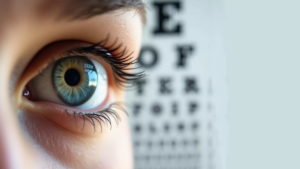
Let us understand the fundamentals of the eyes anatomy beneficial for eye health.
- Cornea: The transparent outer layer that helps in light focus.
- Pupil: The iris’s central opening, which regulates light entry.
- Lens: A transparent structure helps to concentrate light even more on the retina.
- Retina: The layer at the rear of the eye which is light-sensitive and communicates visual information to the brain.
- Optic nerve: It sends information about vision from the retina to the brain.
Common Eye Issues
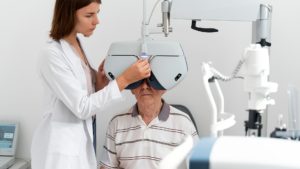
If left untreated, a variety of eye conditions can damage eyesight. Among the most prevalent issues are:
- Myopia (nearsightedness): The inability to see objects that are far away.
- Farsightedness, or hyperopia: The inability to view close objects.
- Astigmatism: Imbalanced corneal curvature causing blurry vision.
- Presbyopia: Age-related near vision loss.
- Cataracts: This clouding of the lens, is typical in elderly persons.
- Glaucoma: Increased eye pressure that harms the optic nerve.
- Macular Degeneration: Central vision loss is frequently brought on by aging.
Daily Practices to Improve Eye Health
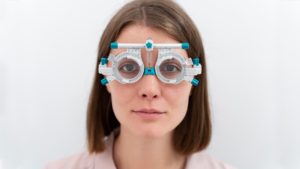
Good everyday practices can promote general eye health and prevent numerous eye problems.
- Take Regular Breaks from Screens: To avoid digital eye strain, observe the 20-20-20 rule, which states that you should stare at anything 20 feet away for 20 seconds every 20 minutes.
- Blink More Often: Blinking prevents dry eyes by keeping the eyes moist, especially when focusing on screens.
- Put on sunglasses to shield your eye from UV radiation, which can lead to macular degeneration and cataracts.
- Keep Yourself Hydrated: Water consumption keeps your eyes moist.
- Use Appropriate Lighting: To lessen eye strain, make sure your workspace is well-lit.
Meals to Promote Eye Health
The risk of eye disorders can be considerably decreased and eye health can be greatly enhanced with a diet high in vitamins and antioxidants. Make the following a part of your diet:
- Vitamin A: Found in spinach, sweet potatoes, and carrots, it is necessary for keeping the retina healthy.
- Vitamin C: Found in bell peppers, oranges, and strawberries, it helps shield the eyes from oxidative damage.
- Vitamin E: Found in sunflower seeds and almonds, it lowers the incidence of macular degeneration and cataracts.
- Omega-3 Fatty Acids: Found in flaxseed and salmon, these acids help prevent dry eyes and lower the incidence of glaucoma.
- Lutein and Zeaxanthin: Found in leafy greens like spinach and kale, these nutrients are crucial for preserving the retina and enhancing vision.
How to Avoid Digital Eye Strain?
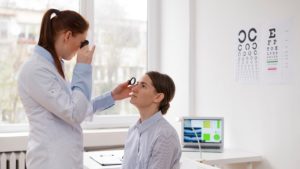
Many people have digital eye strain, commonly referred to as computer vision syndrome, in modern digital world. Here are some pointers to avoid it:
The ideal screen placement is for it to be between 20 and 30 inches from your face, at eye level.
Blue Light Protection: To lessen eye strain, use blue light filters on displays or think about wearing glasses that block blue light.
Minimize Glare: Make sure there is no glare on your screen, as this might cause eye strain.
Modify Your Workspace: To avoid straining your neck and eyes, maintain a suitable chair height and take care of your posture.
The Ending Notes
The likelihood of developing eye conditions such as cataracts, glaucoma, and macular degeneration rises with age. Vision loss can be avoided by detecting problems early so have your examination done.
Control your blood pressure and blood sugar levels because they can harm your eyes’ blood vessels and cause visual issues.
As previously specified, a diet high in nutrients can help protect your eyes from age-related conditions.
Protecting Your Eyes is highly valued. Permanent visual loss can result from eye injuries. Wearing the appropriate protection is essential whether you are participating in sports, working in a dangerous area, or spending time in the sun.
Eyes are precious and so is your overall health. Therefore, count this blessing and take wonderful care of it.


